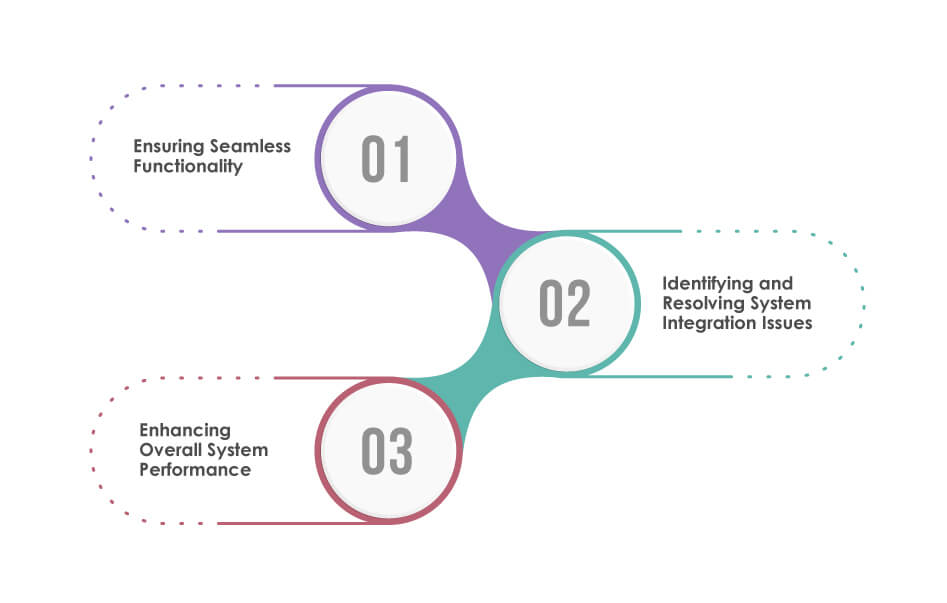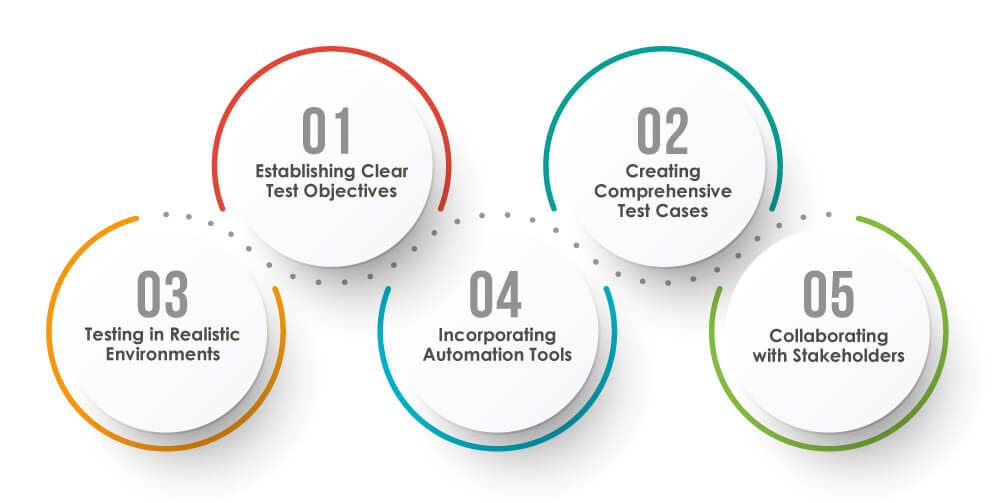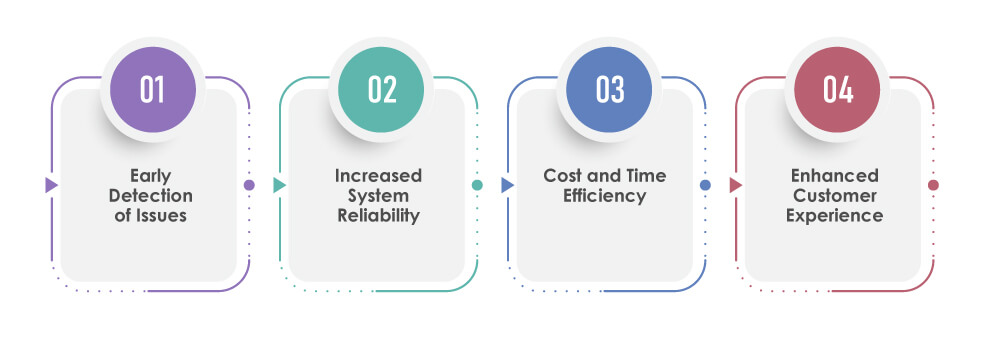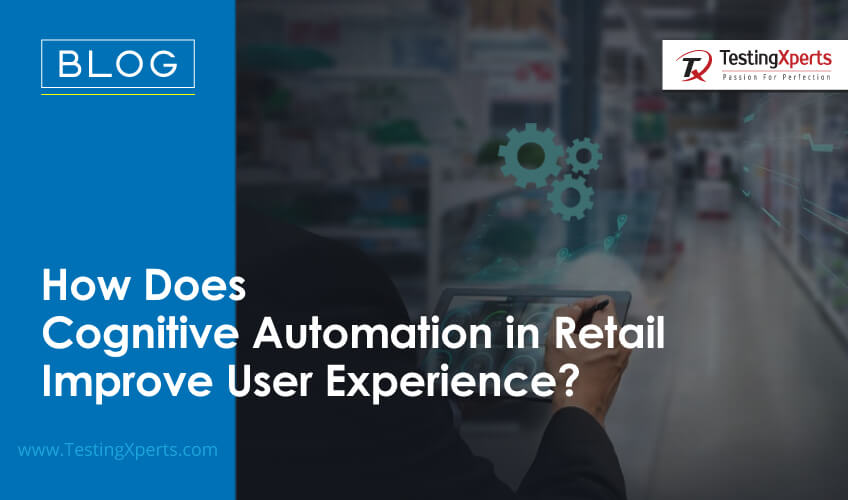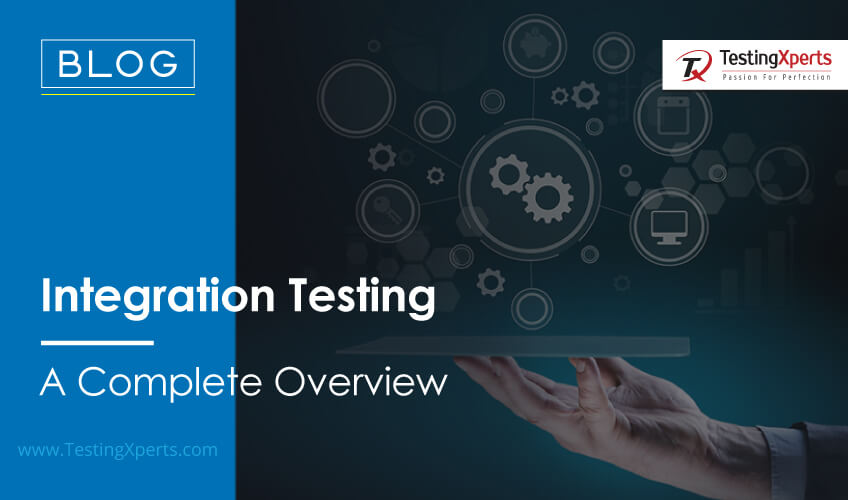
- Importance of Integration Testing for Retail Business
- Best Practices for Integration Testing in a Retail Business
- Benefits of Integration Testing in a Retail Business
- How Integration Testing Improves Performance of Retail Business
- Conclusion
- How Can TestingXperts Help with Integration Testing for Retail Business?
Did you know that 73% of consumers prefer positive customer experience as a decisive factor in purchasing decisions? Moreover, in a survey, 87% of retailers attributed system downtime and technical glitches as the leading cause of customer dissatisfaction. These statistics show the importance of integration testing for the retail industry.
As customer expectations are at an all-time high, businesses must deliver seamless experiences and stay ahead of the competition. The key to achieving this lies in the robustness and efficiency of retail app systems and processes. That is where integration testing comes in, a critical factor that can make or break a retail business’s success.
Importance of Integration Testing for Retail Business
Let us understand the significance of integration testing for retail businesses, exploring how it ensures seamless functionality, resolves integration issues and enhances overall app performance:
Ensuring Seamless Functionality
Integration testing ensures that different software components and systems in a retail environment seamlessly communicate and interact with each other. By simulating real-world scenarios, such as processing sales transactions, updating inventory, or syncing customer data across multiple systems, integration testing helps identify any issues that may arise due to incompatible interfaces or conflicting data formats. Ensuring seamless functionality across the retail ecosystem enables a consistent and smooth customer experience, leading to higher customer satisfaction and loyalty.
Identifying and Resolving System Integration Issues
Integration testing safeguards against integration-related problems when different software systems are brought together. It helps detect data inconsistencies, communication failures, or performance bottlenecks. By uncovering these issues early in the development lifecycle, retail businesses can proactively address them, reducing the risk of app failures, downtime, or data corruption. Resolving integration issues on time enhances the overall stability and reliability of the retail systems.
Enhancing Overall System Performance
Integration testing plays a significant role in optimizing the performance of retail systems. Evaluating the performance impact of interconnected components and systems helps identify and mitigate performance bottlenecks. This proactive approach allows retailers to enhance their strategies, ensure efficient resource utilization, and deliver optimal response times. With enhanced system performance, retailers can handle increased transaction volumes, support peak shopping periods, and provide a seamless shopping experience to customers.
Best Practices for Integration Testing in a Retail Business
From establishing clear test objectives to creating comprehensive test cases, testing in realistic environments, leveraging automation tools, and fostering collaboration with stakeholders, the following practices lay the foundation for successful integration testing for retail businesses. By following them, retail businesses can unlock the full potential of their systems, mitigate integration-related risks, and deliver exceptional customer experiences that drive revenue and foster long-term loyalty:
Establishing Clear Test Objectives
Retail businesses should establish clear and well-defined test objectives to conduct effective integration testing. This includes identifying the critical components and interactions to be tested, defining performance benchmarks, and establishing criteria for success.
Creating Comprehensive Test Cases
Comprehensive test cases should be developed to cover various integration scenarios, including positive and negative test cases. By covering a wide range of interactions and data flows, retail businesses can ensure thorough testing and uncover potential issues that may arise during system integration.
Testing in Realistic Environments
Testing in realistic environments closely mimicking the production environment is crucial for accurate validation. Retail businesses can uncover integration issues that may only manifest in specific conditions by replicating real-world conditions, including data volumes, network traffic, and app configurations.
Incorporating Automation Tools
Leveraging automation tools can significantly enhance the efficiency and effectiveness of integration testing. Automated test scripts can simulate complex interactions, generate test data, and execute repetitive test cases. It allows retail businesses to save time, reduce manual effort, and achieve faster feedback on system integrations.
Collaborating with Stakeholders
Effective collaboration between the development, testing, and operations teams and with business stakeholders is crucial for successful integration testing. Regular communication, sharing of requirements, and feedback loops ensure that the integration testing process aligns with the overall business objectives and accurately reflects real-world scenarios.
Benefits of Integration Testing in a Retail Business
Retail owners can improve their business’s performance, security, and customer satisfaction by investing in integration testing. There are many benefits to integration testing in a retail business. These benefits include:
Early Detection of Issues
Integration testing helps identify issues early in the development lifecycle, allowing retail businesses to address them promptly. This reduces the cost and effort associated with fixing problems in later stages and minimizes the risk of disruptions to retail operations.
Increased System Reliability
By thoroughly testing the integration points, retail businesses can enhance the reliability of their systems. Integration testing uncovers vulnerabilities, inconsistencies, and compatibility issues, enabling firms to take corrective measures and build robust, dependable designs.
Cost and Time Efficiency
Investing in integration testing upfront saves time and costs in the long run. By catching and resolving integration issues early, retail businesses can avoid potential app failures, downtime, or costly rework. Additionally, integration testing helps streamline the development and deployment processes, ensuring efficient use of resources.
Enhanced Customer Experience
Integration testing directly impacts the customer experience. By ensuring seamless functionality, data accuracy, and efficient app performance, retail businesses can provide a superior shopping experience to customers. This increases customer satisfaction, repeat business, and positive brand perception.
How Integration Testing Improves Performance of Retail Business?
To optimize performance and ensure smooth operations, integration testing emerges as a critical practice that can revolutionize how retail businesses operate. It enhances the overall performance of retail enterprises by streamlining processes, minimizing downtime and data loss, optimizing system scalability, and safeguarding data integrity and security. Let us understand in detail with the following pointers:
Streamlining Business Processes
Integration testing is crucial in streamlining business processes within a retail environment. By validating the integration points between different systems, such as inventory management, order fulfilment, and payment processing, retailers can achieve smoother workflows, minimize manual intervention, and reduce operational inefficiencies.
Minimizing Downtime and Data Loss
Through rigorous integration testing, retail businesses can identify and rectify potential issues that may lead to app downtime or data loss. By ensuring robust data synchronization, fault tolerance, and disaster recovery mechanisms, businesses can mitigate the risk of disruptions and safeguard critical business data.
Ensuring Data Integrity and Security
Integration testing is crucial in validating data integrity and security measures within a retail ecosystem. Retail businesses can ensure customer data’s confidentiality, integrity, and availability by verifying data encryption, access controls, and secure communication channels, protecting their customers and brand reputation.
Steps to Perform Integration Testing for Retail Apps
By thoroughly testing these integrations, businesses can identify and address potential issues before they impact the customer experience or disrupt operations. Let us look into the approach to performing integration testing for retail applications:
Step-1: Define Integration Scenarios
Identify critical business processes within retail applications and determine the integration scenarios that need to be tested. It includes order processing, inventory synchronization, payment processing, and customer communication.
Step-2: Prepare Test Data
Create a comprehensive dataset that covers various scenarios, including different product types, order quantities, payment methods, and customer profiles. The test data should encompass standard and edge cases to ensure thorough testing.
Step-3: Set Up Test Environment
Create a dedicated test environment that closely resembles the production environment, including the necessary integrations, APIs, and data sources. This environment should mimic real-world conditions to assess system behavior accurately.
Step-4: Execute Integration Tests
Conduct integration tests by simulating end-to-end user journeys and system interactions. Verify that data flows seamlessly between different components, identify potential bottlenecks, and ensure proper error handling and system stability.
Step-5: Automate Testing Processes
Leverage automation frameworks and tools to streamline the testing process, increase efficiency, and reduce human error. Automation enables repetitive tests to be executed quickly and consistently, freeing resources for more complex testing scenarios.
Conclusion
Integration testing is critical for streamlining business processes, minimizing downtime and data loss, optimizing system scalability, and ensuring data integrity and security. With the help of professional testing partners like TestingXperts, retail businesses can leverage expertise, industry best practices, and advanced tools to implement robust integration testing strategies. Embracing integration testing as an integral part of their software development lifecycle, retail businesses can gain a competitive edge in today’s dynamic retail landscape.
How Can TestingXperts Help with Integration Testing for Retail Business?
Our experienced team of testing professionals specializes in integration testing, utilizing industry-leading tools and frameworks to deliver comprehensive and efficient testing solutions. From defining test objectives to creating robust test cases and executing thorough tests, TestingXperts collaborates closely with retail businesses to identify and resolve integration issues, optimize system performance, and enhance the overall quality of their software ecosystem.
Why Choose Our Integration Testing Services?
Expertise in Retail Business Domain:
Our team of experienced professionals possesses in-depth knowledge of retail apps and systems, including POS, inventory management, e-Commerce platforms, CRM, and more. We leverage this domain expertise to deliver targeted integration testing solutions tailored to your retail environment.
Comprehensive Testing Approach:
We follow a comprehensive testing approach encompassing all aspects of retail businesses’ integration testing. From validating data exchange and system interfaces to testing communication protocols and compatibility across multiple devices and platforms, we ensure thorough coverage to identify and address potential integration issues.
Best Practices and Methodologies:
Our integration testing services are based on industry best practices and methodologies. We employ proven testing frameworks and tools to streamline the testing process, improve efficiency, and maximize test coverage. We deliver consistent and reliable results for your retail apps by adhering to standardized testing practices.
Collaborative Approach:
We strongly collaborate with our clients throughout the integration testing process. Our team works closely with your stakeholders, including developers, business analysts, and system administrators, to ensure a shared understanding of testing objectives and requirements. We value your input and insights, fostering a collaborative environment that leads to successful integration testing outcomes.
Customized Test Strategies:
Every retail business has unique integration requirements. We develop tailored test strategies aligning with your business goals and system architecture. Our experts analyze your software ecosystem, identify critical integration points, and design test scenarios that cover all essential aspects of integration testing, ensuring the reliability and performance of your retail systems.
Timely and Cost-Effective Solutions:
We understand the importance of time-to-market and cost-efficiency for retail businesses. Our integration testing services are designed to deliver timely results without compromising quality. By leveraging automation tools and frameworks, we optimize the testing process, minimize manual effort, and provide cost-effective solutions to meet your budgetary constraints.
Enhanced Customer Experience:
Seamless integration of retail systems directly impacts the customer experience. By ensuring the smooth flow of operations, accurate data exchange, and reliable system performance, our integration testing services contribute to an enhanced customer journey. With robust and efficient systems, you can provide your customers with seamless transactions, personalized services, and consistent experiences across various touchpoints.
Contact us today to learn more about how our integration testing services can support your retail business in achieving its goals.
Discover more
Get in Touch
Stay Updated
Subscribe for more info

